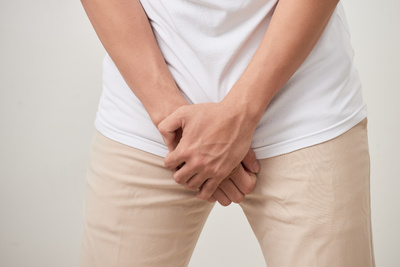Premature ejaculation – causes and methods to deal with the problem
Premature ejaculation is a problem that many men struggle with – not only the young ones. Numerous factors contribute to the disorder, but there are effective ways to help you deal with it.
Premature ejaculation and young age
In this disorder, ejaculation occurs very quickly, sometimes even before vaginal penetration. Therefore, the problem usually affects your partner as well because they cannot achieve full satisfaction during sexual intercourse. In young men who has not have very many sexual encounters yet, it is a very common indisposition. High arousal, usually coupled with stress, is conducive to the inability to prevent premature ejaculation. If the problem stems from your young age – you do not need to worry. Over time, you will learn how to control ejaculation. It will be made easier if you are in a stable relationship with a partner who you can trust and with whom you feel comfortable. In some males, however, the abnormal ejaculation reflex becomes permanent and affects the adult life.
Premature ejaculation in more mature men is sometimes attributed to the hyperarousal of the pudendal nerve, other times hypersensitivity of the glans penis, or weak sphincter urethrae.
See also: Premature ejaculation – treatment. How to delay ejaculation?
Causes of premature ejaculation
Did you know that intimate encounters you have at the start of your sex life can affect your future relations in the bedroom? Sometimes, the first reactions leave an imprint and stay with you for long years. Therefore, even when you are young, it is worth refraining from one-time, casual erotic encounters, especially if the intimate moments are separated by longer intervals. You should also carefully listen to what your partner says and read their signals. It happens that men have no idea about their indisposition until their significant other make them realize it.
The causes of premature ejaculation can be inborn or acquired. Sometimes, they result from past infections or from somatic diseases. The problem can also stem from, for example, urinary tract inflammations and prostatitis. If you have had any injuries (especially in the spinal cord region) you should ask a doctor for opinion whether it could be the injuries that caused the premature ejaculation problems. Every day, modern men have to deal with the pressure of time and various psychological problems, such as anxiety or the sense of guilt – these problems also contribute to premature ejaculation.
See also: Methods to treat premature ejaculation
Methods for premature ejaculation
If your indisposition is starting to become a real nuisance – do not worry in advance. You have a wide range of measures at your disposal to delay ejaculation effectively. You can reach for gels, ointments, or even condoms which desensitize the penis. However, it is best to start from exercises that will help you control ejaculation – if you invite your partner to partake in these exercises, they will bring the expected results faster. If you suspect that the causes lie in mental disorders – ask a psychologist for help. When the problem of premature ejaculation becomes severe and lasts a long time, the doctor will probably prescribe pharmacological treatment coupled with psychotherapy.
There are many drugs in the market which allow regaining control over ejaculation – some of them are only available on prescription. Specialists prescribe their patients, for example, prostaglandin injections, which are made before a sexual encounter. This substance makes it possible to continue sexual intercourse after ejaculation, as erection is still maintained.
If your problems with premature ejaculation become a nuisance, seek medical help. Pharmacological preparations are becoming increasingly more effective – it is worth supporting specialist treatment with exercises, which can be very pleasurable for both partners.
The content of the “Health Knowledge” section at dimedic.eu are provided for information and education only and cannot be used as a substitute of going to a doctor or other specialist. The publisher shall not be liable if the advice and information published on the website are used without consulting a specialist.






